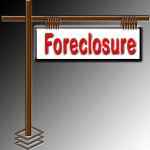 Actor Fred Thompson used to appear on my Sunday morning news program every week touting the benefits of a “government insured”, safe, reverse mortgage.
Actor Fred Thompson used to appear on my Sunday morning news program every week touting the benefits of a “government insured”, safe, reverse mortgage.
Get the money you deserve to live the good life, he urged.
I’m watching the aftermath of that sales pitch play out for one of my clients, and it’s not “the good life” I’m watching.
In fact, the foreclosure sale on the home is scheduled for next week.
Intentions thwarted
The borrower, a single woman of many decades, took out the reverse mortgage and drew down on the loan.
She has passed away, leaving the house to my client.
The house may have as much as $300,000 in equity over and above the reverse mortgage.
But because the borrower has passed away, the lender won’t take payments from anyone else. The loan is due and full, says the lien holder, and that’s that.
The climate for a refinance of the property in the hands of my client isn’t auspicious, so the house, and all that equity, may go, not to the relative of choice, but to the “friendly”, reverse mortgage lender.
Bankruptcy possible
A bankruptcy filing may solve this particular problem. We’ll see.
Bankruptcy is an option only because the heir to the house is an individual. Individuals can file bankruptcy. Trusts and estates cannot.
If the elderly borrower had left the house to her estate, the automatic stay that comes with a bankruptcy filing, would not be available to the probate estate. The probate estate isn’t eligible for bankruptcy relief.
House as piggybank
The risks of reverse mortgages are becoming more apparent, summarized in this Consumer Financial Protection Bureau report to Congress.
A surviving spouse who is not on the loan may have no right to stay in the home on the borrower’s death. The loan is complex and may encourage premature tapping of home equity.
In the bigger picture, the pressure to tap home equity to support retirement is the predicable result of regarding your home as your piggybank or your retirement nest egg.
The only way to take advantage of that nest egg is to either sell the house or to borrow against it. By retirement age, most homeowners aren’t great candidates for a conventional loan contemplating monthly payments.
And as we’ve seen in the Great Recession, you can’t count on a robust real estate market when you need that equity for retirement.
So, the gap in the retirement safety net is created, and in steps Fred Thompson and the company he shills for.
As the sergeant on Hill Street Blues said every shift: Hey, let’s be careful out there.
Image courtesy of Flickr and Images of Money





